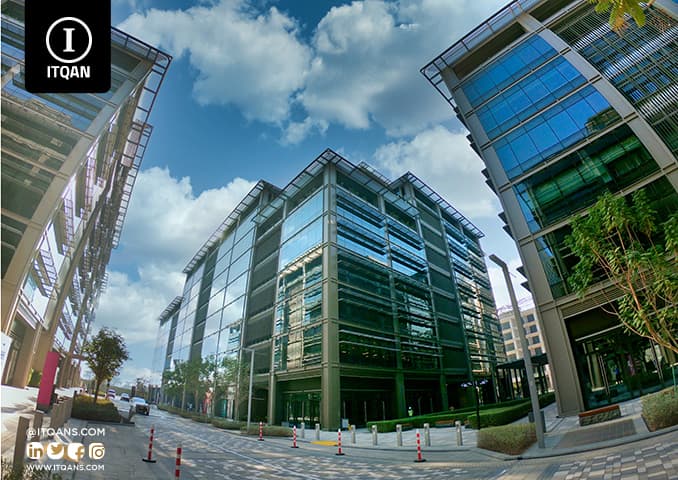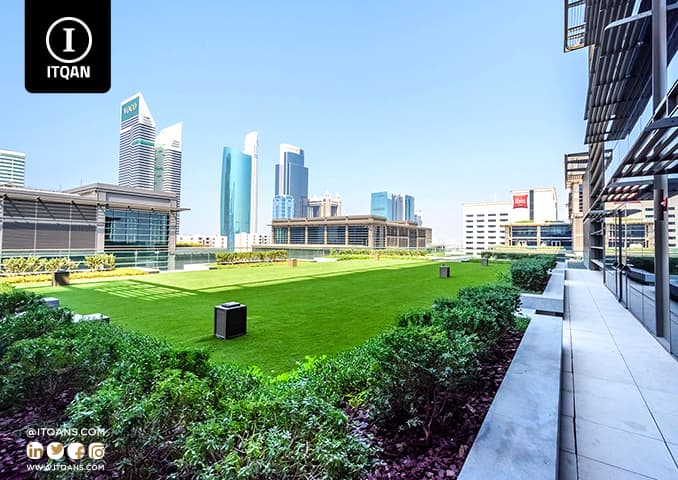Self-employment status is a concept that refers to the ability of individuals to engage in business or self-employment without dependence on a specific employer or company. This concept is considered one of the most important models in the modern world of work, as it allows individuals to achieve financial independence and develop their own projects without the need for traditional job dependency. The establishment of self-employment reflects an important shift in the culture of work and the economy, where individuals can more freely and flexibly define their goals and working methods.
Freelancing is a popular option among individuals who want to work on their own time and achieve a better balance between professional and personal life. Freelancing can include a variety of activities such as consulting, training, design, software development, writing, creative services and many more. This opportunity provides individuals to earn a suitable income and achieve success in various fields that suit their talents and interests.
The success of establishing self-employment depends on several factors, including technical and financial readiness, understanding the market and demand for services or products, the ability to market and build relationships with customers, and flexibility in adapting to challenges and changes in the market. Achieving success in self-employment requires hard work and continuity in developing skills and improving performance to meet the needs of clients and the market.
With the development of technology and the spread of the Internet, establishing freelance work in Sharjah has become more possible and easy, as it is possible to work remotely and deal with clients and partners via the Internet from anywhere in the world. This model helps achieve economic sustainability and promote diversity and innovation in the labor market.

جدول المحتوى
ToggleHow to obtain a freelance license
To calculate the requirements accurately, it is always preferable to check the current regulations with the relevant authorities, but usually follow the following steps to obtain a freelance license in Dubai:
- Determine your business activity: Define your self-employment activity and make sure it complies with local laws and regulations.
- Choose a business name: Choose a business name for your business that complies with local laws and regulatory guidance.
- Company Incorporation: Establish your company in Dubai, this can include obtaining a trade license and company registration.
- Submitting documents: You may need to submit documents such as a passport, photographs, rental agreement (if you are renting a place), and application form.
- Obtaining approval: After submitting documents, you may need to wait for approval from local authorities.
- Health Insurance: Health insurance can be a requirement for obtaining a self-employment license.
- Government Payments: You may need to pay government fees and fees required to obtain the license.
- Receiving the license: After meeting all the requirements, you can receive the self-employment license.
The cost of obtaining a self-employment license
The cost of obtaining a freelance license in Sharjah varies according to many factors, including the type of license and the industry in which the work is done. Here are some points to keep in mind:
- License fees: These fees may range between different industries and activities.
- Costs of additional services: You may require additional services such as legal advice or administrative services, and this may result in additional costs.
- Government expenses: The cost of the license may include expenses imposed by the relevant government agencies in Dubai.
- Administrative expenses: You may have to pay administrative expenses to the company providing the licensing services.
- Accommodation and visa costs: The cost of the license may also include accommodation and work visa costs.
Basic conditions for obtaining self-employment residency in Sharjah
Conditions for obtaining self-employment residency in Sharjah depend on government policies and regulations, and may vary based on the type of activity and industry. However, here are some basic conditions that may be required:
- Self-employment license: Applicants must obtain a self-employment license from the competent authorities in Sharjah.
- Health Insurance: Obtaining self-employment residency may require valid health insurance.
- Health certificate: The application for self-employment residency may require submitting a health certificate proving the absence of infectious diseases.
- Personal photos: Submit recent personal photos.
- Passport: A valid passport.
- A copy of the self-employment license: A copy of the self-employment license granted by the competent authorities.
- Securing financial obligations: There may be requirements to provide proof of the necessary financial obligations.
Documents required to submit a self-employment visa application
Documentation requirements for a self-employment visa in Dubai change based on the type and legal nature of the activity being undertaken. However, here is a general list of documents that may be required:
- Copy of passport: The passport must be valid and a copy of the personal data pages must be submitted.
- Personal photos: Recent personal photos.
- Digital Selfie: You may be asked to submit a digital selfie.
- Curriculum vitae (CV): Documentation of your work and educational experiences.
- Offer letter or contract: If you have received a job offer or entered into a contract for employment, you must provide a copy of it.
- Freelance License: A copy of the freelance license granted by the relevant authorities in Dubai.
- Business plan: A document that explains the type of business you intend to engage in and a plan for success in it.
- Experience certificate: If available, it is preferable to submit previous experience certificates.
Types of visas available for residence in the UAE
There are several types of visas available for residence in the UAE. These visas are classified according to the purposes of stay and permitted activities. Here are some of the main visa types in the UAE:
- Visit visa: Issued to people who wish to visit the UAE for the purpose of tourism, a temporary family or business visit. Visitor visas are available for a specific period that varies according to purpose and nationality.
- Work visa: Issued to people who have received a job offer from an employer in the UAE. It includes different categories such as national visa, professional skills visa, and private employee visa.
- Investment Visa: Issued to individuals who wish to invest capital in the UAE by establishing a company or purchasing a property. Investment visas include the investor visa and the executive visa.
- Student Visa: Issued to people who wish to study in recognized educational institutions in the UAE. This visa is based on admission to an educational institution and requires sponsorship by a responsible party.
- Family visa: Issued to family members residing in the UAE, such as spouse, children, and parents. The sponsor (resident) must provide financial support and appropriate accommodation to the individuals associated with him.
- Retirement Visa: Issued to individuals over the age of 55 who wish to settle and reside in the Emirates after retirement. Retirees must provide proof of a stable source of income and obtain appropriate health insurance.
Facilities and benefits available to foreign investors in the Emirates
The UAE is famous for its advanced and innovative investment environment that attracts foreign investors from around the world. Through its commitment to strengthening the economy and stimulating innovation, the UAE offers a range of facilities and benefits to foreign investors to support and encourage them to invest in the UAE . Below is an overview of some of these facilities and benefits:
- Free zones: Free zones are available in the Emirates, such as Dubai, Abu Dhabi, Sharjah, Ras Al Khaimah, and Ajman, and these zones provide tax and customs facilities and flexible local legislation for foreign companies.
- Flexible laws: The UAE has a flexible legislative and economic environment, as it adopts open investment policies and facilitates the establishment and operation processes of foreign companies.
- Political and economic stability: The UAE enjoys political and economic stability, making it a preferred destination for foreign investments.
- Multinational workforce: The UAE has a multinational and qualified workforce, which facilitates the operation of companies and meeting their needs in different fields.
- Advanced infrastructure: The UAE has an advanced infrastructure that includes airports, ports, roads and communications, which facilitates transportation and distribution operations for companies.
- Government guidance: The UAE government provides guidance and support to foreign investors through programs and initiatives aimed at promoting investment and developing vital sectors.
In short, the UAE provides an ideal investment environment for foreign investors, while providing facilities and benefits that make it easy to successfully establish companies in Sharjah .

Promising investment sectors in the Emirates
The United Arab Emirates has a dynamic and diverse investment environment that offers promising opportunities in several sectors. The UAE’s ambitious vision and the diversification of its economy reflect its transformation into one of the most attractive investment destinations in the world. Below is an overview of some investment sectors in the UAE :
- Energy and Infrastructure: The UAE is witnessing huge investments in the energy and infrastructure sector, including renewable energy and smart and sustainable infrastructure, providing broad opportunities for companies wishing to participate in these vital sectors.
- Technology and Innovation: Innovation and technology development are among the UAE’s priorities, making it a leading center for technology and innovative companies, and providing great opportunities for investment in the technology, communications, artificial intelligence, and financial technology sectors.
- Tourism and Hospitality: Tourism and hospitality are vital sectors in the UAE economy, as Dubai, Abu Dhabi and the other emirates attract millions of tourists annually, providing various opportunities to invest in hotels, resorts, and luxury tourism services.
- Education and training: The education and training sector is considered one of the most important investment sectors in the Emirates, as the government seeks to enhance the quality of education and develop human competencies, which creates broad opportunities for investment in private schools, universities, and educational institutions.
- Creative and entertainment industries: The UAE aims to promote the creative and entertainment industries as part of its vision for economic diversification, providing opportunities for investment in arts, culture, entertainment, and media production.
In short, Itqan Company provides the opportunity for self-employment in the United Arab Emirates by providing a shared environment and comprehensive support for entrepreneurs. The Freelancing Program with Itqan is an ideal opportunity for individuals who want to establish and manage their own business in the Emirates.
Through Itqan Company, entrepreneurs can benefit from many benefits and services, including a self-employment visa and legal, financial and administrative support. An innovative and flexible joint work environment is provided that helps enhance cooperation and exchange of experiences between different entrepreneurs.
With a self-employment visa, entrepreneurs can work freely in the UAE and establish their own companies without the need for a local partner. The company provides support for various business activities, including legal advice, assistance with incorporation procedures, business management, and assistance in communicating with government agencies.
In short, the self-employment program in cooperation with Itqan Company provides a wonderful opportunity for entrepreneurs to achieve their ambitions and manage their own businesses in the United Arab Emirates. It is an opportunity to benefit from the common working environment and comprehensive support for establishing companies in the Emirates .
Frequently asked questions about what is a self-employment residency
What is the residency permit for self-employment in Sharjah?
Self-employment residency in Sharjah allows individuals to freely practice their commercial or professional activities without the need to link them to a local company or Emirati partner.
What are the basic steps to obtain self-employment residency in Sharjah?
The individual must submit a request to issue a self-employment residence permit to the relevant authorities, such as the Sharjah Economic Development Department, submit the required documents and pay the relevant fees.
What are the main advantages of establishing self-employment in Sharjah?
Benefits include full control of your business, no need for an Emirati partner, obtaining residency for family, opening a bank account, and obtaining work permits for employees.
Can foreigners obtain self-employment residency in Sharjah?
Yes, foreigners can obtain self-employment residency in Sharjah, provided that the conditions and requirements specified by the relevant authorities are met.
What are the fees required to obtain a self-employment residency in Sharjah?
Fees vary according to the type and length of stay required, and precise details about fees can be obtained from the relevant authorities.
Can the self-employment residency be converted into an investment residency at a later time?
Yes, after achieving specific criteria, the self-employment residency holder can convert his residency into an investment residency later.



